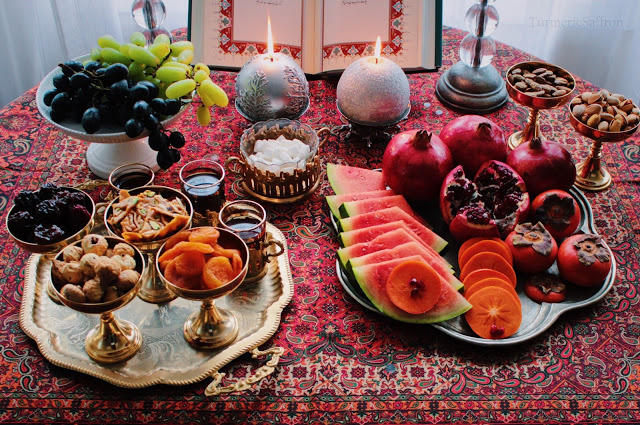Shabeh Yalda
January 7, 2019
For many people around the world, the winter solstice is only the longest night of the year. However, Iranian families across the world chose the eve of winter solstice better known as “Shabeh Yalda” to celebrate the triumph of Mithra. Mithra is a benevolent god of light, whose cult spread throughout Europe and Asia, and his worship spread to Persia after the defeat of the Persians by Alexander the Great. The celebration dates back to the times when a fair amount of Persians were followers of the Zoroastrian faith. Yalda means birth, an ancient Syriac word, that was adopted by the Persian language (Farsi).
On December 21-22, it is believed evil runs amok on the longest night of the year, so people gather together until the dawn comes and goodness prevails. Friends and families gather together and follow three ancient traditions of eating summer fruits displaying it on the Yalda night table, making wishes, and reciting works from the 14th century poet Hafez of Saadi. “Each family member makes a wish and randomly opens Hafez’s book of poems and recites the poem, which is believed to be the interpretation to the wish (Bita Milanian, executive director of Farhang Foundation).
The triumph of Mithra refers to the god of light (sun), when he defeated the darkness as the sun comes over the horizon. Saadi wrote in his book of poetry: “The true morning will not come until the Yalda night is gone.”
The next day starts a new month “Dey”, famously referred as “khoram rooz” (the day of the sun), which belongs to the lord of wisdom Ahura Mazda. It is from this day forward, that days become longer and nights become shorter. Shabeh Yalda is a non religious celebration of the winter solstice in many countries such as Afghanistan, Tajikistan, Uzbekistan, Turkmenistan, Armenia, and Azerbaijan.












